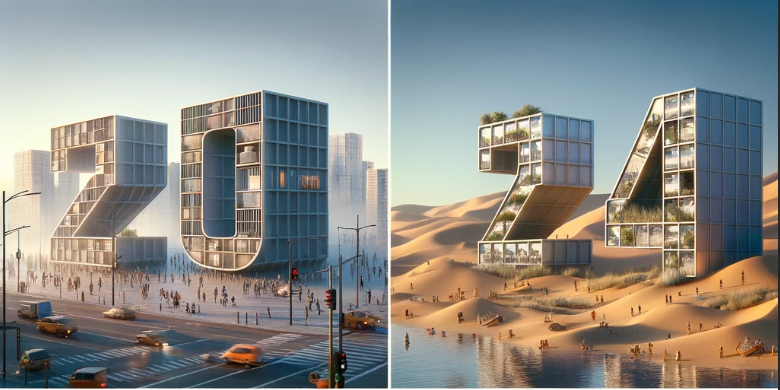As we step into 2024, the modular industry continues to evolve, presenting exciting innovations and trends that promise to reshape the way we design, build, and live. From cutting-edge technologies to sustainable practices, here are some key things to look for in the modular industry this year.
Smart Modular Solutions:
As the world becomes increasingly interconnected, the modular industry is embracing smart technologies to enhance functionality and efficiency. Look for modular systems integrated with artificial intelligence (AI), the Internet of Things (IoT), and other smart features. From smart homes to intelligent office spaces, modular construction is set to redefine the way we interact with our built environment.
Sustainability Takes Center Stage:
Sustainability has been a growing concern, and in 2024, the modular industry is expected to make significant strides in adopting eco-friendly practices. From the use of recycled materials to energy-efficient designs, modular construction is likely to play a pivotal role in creating environmentally responsible structures.
Advanced Building Materials:
Innovations in building materials are poised to revolutionize the modular industry. Expect to see the integration of advanced materials like carbon fiber, graphene, and other high-tech substances that enhance durability, reduce costs, and improve overall performance. These materials will not only contribute to the structural integrity of modular buildings but also push the boundaries of design possibilities.
Biophilic Design for Well-being:
The focus on well-being and mental health is influencing design trends, and biophilic design is gaining prominence in the modular industry. Natural light, green spaces, and natural elements incorporated into modular structures aim to create environments that enhance productivity, reduce stress, and promote overall health.
Customization and Personalization:
Modular construction is shedding its one-size-fits-all image. In 2024, a surge in customizable and personalized modular solutions is anticipated. From residential homes to commercial spaces, modular structures will cater to individual preferences, allowing for a more tailored and unique approach to construction.
Robotic Automation in Manufacturing:
To boost efficiency and precision, the modular industry is increasingly turning to robotic automation in the manufacturing process. This not only accelerates production but also ensures a higher level of quality control. Robots may be employed for tasks ranging from assembly to quality assurance, transforming the way modular components are fabricated.
Flexible and Adaptable Spaces:
The need for flexible spaces has become more apparent, especially in the wake of changing work patterns and lifestyles. In response, modular structures are expected to feature versatile designs that can easily adapt to evolving needs. From co-working spaces that transform into event venues to modular homes that can be reconfigured as families grow, flexibility is a key trend to watch.
Conclusion:
As we embark on the journey through 2024, the modular industry is poised for a transformative year. From the integration of smart technologies to a heightened focus on sustainability and well-being, the modular construction landscape is evolving to meet the demands of a dynamic and ever-changing world. Keep an eye on these trends as they unfold, as they are sure to shape the future of how we conceptualize and construct our living and working spaces.
By: Nate Nagle
